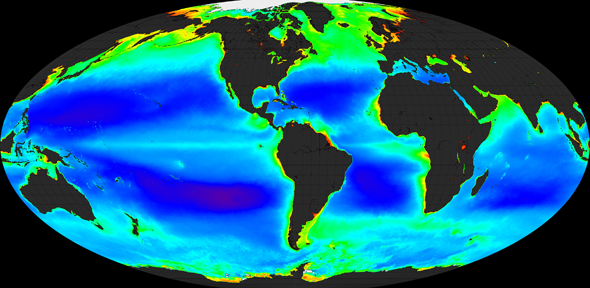
Scientists have calculated that millions of tonnes of hydrocarbons are produced annually by photosynthetic bacteria in the world’s oceans.
An international team of researchers, led by the University of Cambridge, has estimated the amount of hydrocarbons – the primary ingredient in crude oil – that are produced by a massive population of photosynthetic marine microbes, called cyanobacteria. These organisms in turn support another population of bacteria that ‘feed’ on these compounds.
Professor Christopher Howe (senior author) and Dr David Lea-Smith (lead author) both from Cambridge’s Department of Biochemistry have provided comment on the research on the University Research pages - click here to read further.
Reference:Lea-Smith, D. et. al. “Contribution of cyanobacterial alkane production to the ocean hydrocarbon cycle.” PNAS (2015). DOI: 10.1073/pnas.1507274112
Image credit:SeaWiFS Project

